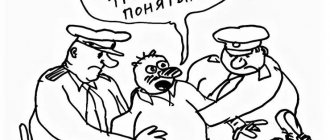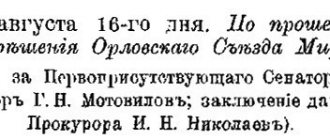At the moment, the legislation strictly establishes the framework of the legality of procedural actions, which investigators during the investigation of a case are obliged to carry out with the mandatory participation of attesting witnesses according to the Code of Criminal Procedure of the Russian Federation. Moreover, almost any person can find himself in this role, regardless of his status and position. However, in practice, a fairly small number of people actually understand what the rights and responsibilities of witnesses are, as well as their difference from witnesses. All this leads to the fact that, if necessary, they cannot adequately fulfill their duties. This article will focus specifically on the role of a witness in criminal proceedings.
Definition
Before moving directly to the definition of what is included in the concept of the rights and obligations of witnesses, it is necessary to understand what meaning the legislators generally put into this term. Surprisingly, it can be found not only in the Criminal Procedure Code, but also in the Code of Administrative Offenses, so that witnesses, if necessary, can participate in both criminal and administrative proceedings.
However, the interpretation itself is found exclusively in Article 60 of the Code of Criminal Procedure of the Russian Federation, where a witness is understood to be a random citizen who can be involved in the course of a case by an investigator or interrogating officer in order to certify the fact of an investigative action, as well as its results and content. Additionally in Art. 170 of the Code of Criminal Procedure of the Russian Federation states that investigative actions should be carried out only in the presence of two witnesses, except in exceptional cases, also provided for by the code.
The witness always acts only as an observer. That is why it is impossible to involve in such actions a person who could receive any benefit for himself during the investigation. A witness is always a disinterested person.
Article 60 of the Code of Criminal Procedure of the Russian Federation. Witness (current edition)
1. The task of witnesses is to certify the fact, content, progress and results of investigative actions during which he was present. Thus, the witness participates in providing the identification side of evidence in criminal proceedings, guaranteeing the reliability of the results of investigative actions. Therefore, it is unacceptable to involve witnesses in investigative actions for the sole purpose of providing in court an evidence base to consolidate and confirm the testimony of persons interrogated in the case, given in the presence of witnesses.
2. Only persons not interested in the outcome of the criminal case can act as witnesses. The law does not disclose the concept of interest in this article, but it is clear that this is any interest in the outcome of the case. It can be not only personal (for example, in the case of family or other close relationships, debt obligations of witnesses with any of the participants in the process, acting on the side of the prosecution or the defense), but also the official dependence of witnesses on persons participating in the investigative action, as well as their general departmental affiliation with the bodies carrying out criminal prosecution. Therefore, persons who are employees of such bodies, who are in the organizational or functional (for the duration of certain events) subordination of an employee of the body of inquiry, the investigator conducting this investigative action, or his superiors, cannot be attesting witnesses. This applies not only to certified employees, but also to administrative and technical personnel, car drivers, persons with whom the authorities conducting the investigation have entered into paid agreements to participate as witnesses, etc.
2. If there is evidence of interest in the case of persons invited as witnesses, including when the defense puts forward appropriate arguments, the burden of refuting these data and arguments due to the principle of the presumption of innocence lies on the prosecution (Part 2 of Article 14), who organized the investigative action, who must prove that uninterested persons were invited as witnesses beyond any reasonable doubt. However, in the cases specified in paragraphs 2 - 3, part 2 comments. article, such a presumption is irrefutable and the relevant persons in any case cannot be attested to.
3. If we proceed from the literal content of clause 3, part 2 of this article, we can come to the conclusion that it is prohibited to be understood not by everyone, but only by those employees of executive authorities who are vested with the authority to carry out operational investigative activities and (or) are related to the preliminary investigation (operatives, investigators, investigators, prosecutors). Then the witnesses could be, for example, public security police officers who do not hold the position of investigators, riot police officers who provide force support for the investigative action, etc. It seems that in such cases, when the defense raises an appropriate objection, the prosecution will have to prove with complete certainty that these persons are absolutely not interested in the outcome of the criminal case, which is extremely difficult to do in practice.
4. For the participation of witnesses in conducting investigative actions, see the commentary. to Art. 170.
Comment source:
Ed. A.V. Smirnova “COMMENTARY ON THE CRIMINAL PROCEDURE CODE OF THE RUSSIAN FEDERATION” (ARTICLE BY ARTICLE), 5th edition
SMIRNOV A.V., KALINOVSKY K.B., 2009
Who can become a witness?
The law clearly defines the category of persons who cannot exercise the rights of witnesses. First of all, these are minor citizens of the Russian Federation, since a person until he reaches 18 years of age is not considered fully capable. Also, the parties to this proceeding, that is, interested parties, as well as their relatives, cannot act as witnesses, since there is a possibility that they can hide data for their own benefit. Law enforcement officers who directly conduct investigations cannot be witnesses either - this measure helps prevent the tampering of evidence that was seized after investigative actions.
If a citizen acts as a witness who falls under one of the above requirements, then the actions of government officials may be considered illegal and therefore invalid.
Functions
Witnesses in criminal proceedings are needed, first of all, in order to exercise control over what information is entered into the protocol and its correctness. That is why they must very carefully observe exactly how investigative actions are carried out (for example, a search of an apartment), watch exactly how the operational worker enters the information received into the protocol, and then check it for errors in the recorded information.
The protocol must directly contain all the data about what the task force did, as well as the fact of the discovery of the sought-after item or its absence. After the witness agrees with all of the above, he puts his signature, certifying the veracity of the information.
First of all, it should be understood that witnesses are to some extent intended to control the police. They help prevent violations that an investigator might commit in the hope of catching a criminal - for example, planting a bag of drugs on his own. That is why witnesses are most often called to conduct a search. Previously, they were also used by traffic police officers to inspect cars and check the driver, but after 2014 this practice almost completely stopped and is used in isolated cases of personal searches.
From the information listed above it is clear who can be a witness, however, if desired, any citizen can refuse such a role. This action is purely voluntary, and there can be no liability for refusal.
Commentary on Article 170 of the Code of Criminal Procedure of the Russian Federation
1. On the concept and procedural position of a witness, see com. to Art. 60.
2. The participation of witnesses is an important guarantee of certifying the objectivity of the evidence obtained. Therefore, witnesses do not participate in those investigative actions that are based on the subjective method of questioning (interrogation, confrontation, examination). Witnesses may be needed in those actions that are based on an objective observation method (for example, inspection, search, examination). Therefore, according to Part 2 of Art. 170 of the Code of Criminal Procedure, the participation of witnesses is advisable in the examination (Article 179) and when obtaining samples for comparative research (Article 202). The Code recognizes the mandatory presence of attesting witnesses to verify the fact that a person cannot sign the protocol when his representatives do not participate in the investigative action (Part 3 of Article 167).
3. Part 3 com. Article established a new exception for domestic legislation to the rule on the mandatory participation of witnesses. Any investigative action can be carried out without witnesses for one of two reasons:
1) the place where the investigative action is being carried out is difficult to access and there are no appropriate means of communication. In practice, inaccessibility means the impossibility of delivering witnesses to the place of investigative action due to objective reasons, including the lack of means of communication. If the investigator is located in a difficult-to-reach high-mountainous area, but he has a real opportunity to ensure the participation of witnesses (for example, from among the climbers who happened to be nearby), then within the meaning of the article being commented on this place is not difficult to access, i.e. does not give the right to conduct investigative actions without witnesses;
2) the conduct of an investigative action is associated with a specific danger to the life and health of witnesses. In this case, the danger must already exist before the start of the investigative action, since the creation by the investigator himself of a danger to health is directly prohibited by law (Part 4 of Article 164 of the Code of Criminal Procedure). The danger should not be abstract (ice on the street can lead to a fall during an inspection), but concrete (for example, increased background radiation leads to a radiation dose, the danger of an explosion when inspecting a pyrotechnic object). The presence of danger excludes the participation of witnesses even if they are willing and ready to do so (unlike the first reason).
In addition to the existence of grounds for carrying out investigative actions without witnesses, the following conditions must be met:
a) the urgency of the situation, i.e. a real threat of loss of traces, concealment of wanted persons and property if there is a delay in carrying out investigative actions (for an emergency situation, see Com. to Art. 157, 165). For example, at night in a place remote from a residential area, the investigator cannot ensure the participation of witnesses during the inspection. However, if the situation allows it to be carried out the next day (in a week), then the inspection cannot be carried out without witnesses. For example, the accused named a specific place in the forest where he hid the stolen property. We must prepare to leave to inspect this place, including inviting witnesses with us. The absence of an emergency situation may make it possible to first eliminate the danger to the life and health of witnesses, and then carry out an investigative action;
b) the use of additional technical means of recording the progress and results of the investigative action (along with the protocol). These means must be adapted to record observation results (video recording, filming, photography). This condition may not be met if it is objectively impossible to use technical means (lack of technical means in an emergency or unfavorable external conditions: strong electromagnetic radiation, heavy rain, etc.). In other cases, the investigator must prepare in advance technical means for recording investigative actions carried out without witnesses. Therefore, the lack of consumables and equipment is not a valid reason for not using technical means of fixation. If the investigative action specified in Part 1 of Art. 170 of the Code of Criminal Procedure, carried out without witnesses and without the use of technical means of recording (when it was objectively possible to do this), then its results should be recognized as unacceptable evidence (Part 3 of Article 7).
4. Witnesses are invited before the start of the investigative action and are present until its completion by drawing up a protocol. In this case, the main thing is that the witnesses perceive the circumstances that are significant for the criminal case. About these circumstances, in order to resolve the issue of the admissibility of the evidence obtained, witnesses can be questioned as witnesses (Part 8 of Article 234 of the Code of Criminal Procedure).
When witnesses are needed
In Art. 170 of the Code of Criminal Procedure of the Russian Federation stipulates in which situations witnesses must necessarily participate in investigative actions:
- During a search or personal search.
- When seizing electronic storage media that are directly related to the investigation itself.
- To establish the identity of a citizen, identify a corpse or object.
The only exception is when the investigation is carried out in difficult to access conditions. However, even then, all actions performed by the investigative team must be recorded on videotape or photographs, and also recorded in detail in a written record.
Article 170 of the Code of Criminal Procedure of the Russian Federation. Participation of witnesses (current version)
1. On the concept and procedural position of a witness, see commentary. to Art. 60.
2. The participation of witnesses is an important guarantee of certifying the objectivity of the evidence obtained. Therefore, witnesses do not participate in those investigative actions that are based on the subjective method of questioning (interrogation, confrontation, examination). Witnesses may be needed in those actions that are based on an objective observation method (for example, inspection, search, examination). Therefore, according to Part 2 of Art. 170 of the Code of Criminal Procedure, the participation of witnesses is advisable in the examination (Article 179) and when obtaining samples for comparative research (Article 202). The Code recognizes the mandatory presence of attesting witnesses to verify the fact that a person cannot sign the protocol when his representatives do not participate in the investigative action (Part 3 of Article 167).
3. Part 3 of the commented article established a new exception for domestic legislation to the rule on the mandatory participation of witnesses. Any investigative action can be carried out without witnesses for one of two reasons:
1) the place where the investigative action is being carried out is difficult to access and there are no appropriate means of communication. In practice, inaccessibility means the impossibility of delivering witnesses to the place of investigative action due to objective reasons, including the lack of means of communication. If the investigator is located in a difficult-to-reach high-mountainous area, but he has a real opportunity to ensure the participation of witnesses (for example, from among the climbers who happened to be nearby), then within the meaning of the article being commented on this place is not difficult to access, i.e. does not give the right to conduct investigative actions without witnesses;
2) the conduct of an investigative action is associated with a specific danger to the life and health of witnesses. In this case, the danger must already exist before the start of the investigative action, since the creation by the investigator himself of a danger to health is directly prohibited by law (Part 4 of Article 164 of the Code of Criminal Procedure). The danger should not be abstract (ice on the street can lead to a fall during an inspection), but concrete (for example, increased background radiation leads to a radiation dose, the danger of an explosion when inspecting a pyrotechnic object). The presence of danger excludes the participation of witnesses even if they are willing and ready to do so (unlike the first reason).
In addition to the existence of grounds for carrying out investigative actions without witnesses, the following conditions must be met:
a) the urgency of the situation, i.e. a real threat of loss of traces, concealment of wanted persons and property if there is a delay in carrying out investigative actions (for an urgent situation, see the commentary to Articles 157, 165). For example, at night in a place remote from a residential area, the investigator cannot ensure the participation of witnesses during the inspection. However, if the situation allows it to be carried out the next day (in a week), then the inspection cannot be carried out without witnesses. For example, the accused named a specific place in the forest where he hid the stolen property. We must prepare to leave to inspect this place, including inviting witnesses with us. The absence of an emergency situation may make it possible to first eliminate the danger to the life and health of witnesses, and then carry out an investigative action;
b) the use of additional technical means of recording the progress and results of the investigative action (along with the protocol). These means must be adapted to record observation results (video recording, filming, photography).
This condition may not be met if it is objectively impossible to use technical means (lack of technical means in an emergency or unfavorable external conditions: strong electromagnetic radiation, heavy rain, etc.). In other cases, the investigator must prepare in advance technical means for recording investigative actions carried out without witnesses. Therefore, the lack of consumables and equipment is not a valid reason for not using technical means of fixation. If the investigative action specified in Part 1 of Art. 170 of the Code of Criminal Procedure, carried out without witnesses and without the use of technical means of recording (when it was objectively possible to do this), then its results should be recognized as unacceptable evidence (Part 3 of Article 7).
4. Witnesses are invited before the start of the investigative action and are present until its completion by drawing up a protocol. In this case, the main thing is that the witnesses perceive the circumstances that are significant for the criminal case. About these circumstances, in order to resolve the issue of the admissibility of the evidence obtained, witnesses can be questioned as witnesses (Part 8 of Article 234 of the Code of Criminal Procedure).
Comment source:
Ed. A.V. Smirnova “COMMENTARY ON THE CRIMINAL PROCEDURE CODE OF THE RUSSIAN FEDERATION” (ARTICLE BY ARTICLE), 5th edition
SMIRNOV A.V., KALINOVSKY K.B., 2009
Optional witnesses
There are also a number of investigative activities during which the presence of witnesses is recommended, but they are not a prerequisite. These include:
- Seizure of documents or items related to the investigation.
- Exhumation of corpses.
- Inspection of the place where the crime was committed.
- Seizure of property.
- Conducting an investigative experiment.
- Listening to telephone conversations and seizing mail or telegraphic items.
- Verification of preliminary data provided by the parties to the criminal case.
Only in all the cases listed above can the rights of an attesting witness be exercised. No other procedural actions are carried out with their participation.
Specific rights
The following are usually classified as specific rights of a witness:
- Permission to participate personally at all stages of the investigative action.
- Filing a complaint against the actions or inaction of the investigator, which were aimed at limiting the witness.
- The opportunity to freely express your comments and opinions about all actions of operatives or investigators. All these comments must also be recorded in the minutes.
- Compensation for all losses incurred, such as travel expenses or part of the salary that the person did not receive due to helping law enforcement agencies during the working period, as well as compensation for time spent.
General rights
In addition to specific rights, there are also general rights of witnesses, with which he is endowed to the same extent as other participants in the criminal process, such as witnesses, victims and other persons. These rights include:
- Obtaining information about your rights and responsibilities while performing the role of a witness, as well as existing responsibilities.
- The use during investigative activities of the native language or any other language that the person speaks. If necessary, he has the opportunity to use the services of a translator.
- Also, if necessary, he can receive full information about why this investigative action is being carried out, as well as what technical means are used for this. A witness can be present during the entire procedure, read the protocol and demand that changes or additions be made to it that seem important to him. At the end, he can sign the protocol or refuse to sign, but in this case he must motivate his actions.
Cancellation of the special procedure for criminal proceedings for serious crimes
On July 7, in the third reading, the State Duma of the Russian Federation adopted bill No. 690652-7, which in the current version of Art. 314 of the Code of Criminal Procedure of the Russian Federation, changes are being made that significantly narrow the circle of persons who have the right to petition for the application of a special procedure for criminal proceedings.
The essence of the amendments. In the new edition of Part 1 of Art. 314 of the Code of Criminal Procedure of the Russian Federation, those accused of committing serious crimes will no longer have the right to file a petition for consideration of a criminal case in a special manner, while this possibility is reserved exclusively for persons who have committed crimes of minor and medium gravity.
As follows from the explanatory note of the Supreme Court of the Russian Federation, the adoption of these changes will help ensure a high degree of procedural guarantees of fair justice in criminal cases, which, as a rule, are particularly complex, affect the interests of a significant number of victims, cause a great public outcry and are covered in the media.
At the same time, upon careful study of Chapter 40 of the Code of Criminal Procedure of the Russian Federation, it becomes clear that the current criminal procedure law sufficiently provides guarantees of respect for the legitimate rights and interests of the state, society and participants in criminal proceedings to fair justice for serious crimes.
Thus, when considering the possibility of making a court decision at the request of the accused to pronounce a sentence without holding a trial in the general manner, the courts check the absence of objections from the public or private prosecutor and the victim to the consideration of the criminal case in a special procedure (Part 4 of Article 314 of the Code of Criminal Procedure of the Russian Federation ), as well as the validity of the accusation and its confirmation by the evidence collected in the case (Article 316 of the Code of Criminal Procedure of the Russian Federation).
Official statistics. Every year, Russian courts of general jurisdiction, using a special procedure for criminal proceedings, consider from 50 to 60% of criminal cases involving serious crimes (statistics from the Judicial Department under the RF Armed Forces). In 2021 alone, 60,582 criminal cases against 66,175 individuals were considered in this way.
Foreign experience. In foreign legal orders, there are legal mechanisms of agreement to plead guilty during the trial, similar to the special procedure of legal proceedings. Thus, in the United States, the accused has the right to enter into a “bargain with justice” for crimes of any severity. At the same time, the Supreme Court recognizes this institution not only as an essential and appropriate part of the judicial system, but also as a “desirable instrument.” A legal mechanism similar in essence and content exists in the UK.
The German legal order, which is closer to ours, also has its own form of agreement with the participants in the process about its further course and result, the essence of which is the admission of guilt by the accused during a trial in exchange for establishing lower and upper limits of punishment. At the same time, a significant difference from the “bargain with justice” in the United States and the Russian special procedure for criminal proceedings is the obligation of the court to continue the judicial investigation with the study of key evidence of the prosecution in order to verify the reliability of the testimony and establish the factual circumstances of the crime committed.
Personal opinion. It is obvious that after the adoption of amendments to Part 1 of Art. 314 of the Code of Criminal Procedure of the Russian Federation, the workload on forensic judges will increase significantly, since the consideration of criminal cases of serious crimes often involves the study of a large amount of evidence of guilt (in particular, witness testimony) presented by the prosecution.
The diversion of significant time resources to the consideration of criminal cases in which there is no dispute between the participants in the proceedings about the guilt and qualification of the act will entail widespread violation of procedural rights for a reasonable period of criminal proceedings, as well as an increase in the number of judicial defects and a decrease in the quality of judicial acts. Of course, these consequences will hit the defendants who challenge the charges most painfully.
Responsibilities
In addition to rights, a person who acts as a witness also acquires a number of responsibilities. These include:
- Confirmation of the fact of the investigative action, that is, he must watch the investigative actions, and then read the protocol and, if correct, sign it.
- When called by the investigator or the court, arrive at the appropriate place.
- The witness must not disclose information obtained during the investigation, as well as comply with all other criminal procedural requirements established by law.
Commentary on Article 60 of the Code of Criminal Procedure of the Russian Federation
1. A witness is an individual who is not interested in the outcome of a criminal case, summoned (invited) in the manner established by the Criminal Procedure Code, by an investigator (inquirer, etc.) to certify the fact of production, content, progress and results of an investigative action, as well as carrying out an investigative action during the production process the specified function.
2. One of the Commentaries to the Code of Criminal Procedure states that “a witness plays the role of one of the guarantors of the correctness of direct perception during the investigative action of the circumstances and facts that are significant for the criminal case” <381>. It is unlikely that anyone can guarantee (control) someone's “perception”. And what perception should be considered correct? A witness is a guarantor not of “perception”, but of reflection in the protocol of everything that took place during the investigative action. He is not familiar with the criminal procedural requirements for the investigative action procedure, and only in connection with this circumstance cannot know whether it was carried out correctly or not. But the witness can correlate the contents of the investigative protocol with what actually took place. In this part, he guarantees that the content of the investigative action protocol will exactly correspond to what the investigator (inquirer, etc.) did, as well as other participants in the investigative action during its implementation. ——————————— <381> See: Commentary on the Criminal Procedure Code of the Russian Federation. M.: Yurist, 2002. P. 189.
3. Part 3 of the commented article provides the basic rights of an attesting witness. However, this is not a complete list of the rights of this participant in criminal proceedings. The most complete list of his rights is as follows.
4. A citizen brought in as a witness has the right:
1) know the purpose and procedure for conducting an investigative action, your rights, duties and responsibilities (part 1 of article 11, part 10 of article 166, part 4 of article 170 of the Code of Criminal Procedure of Russia);
2) use the help of an interpreter (part 2 of article 18 of the Code of Criminal Procedure of Russia);
3) participate in the investigative action and be present at all its component actions of the investigator (inquiry officer, etc.);
4) be warned about the use of technical means (part 5 of article 166 of the Code of Criminal Procedure of Russia);
5) make statements and (or) comments regarding the actions taken that must be entered into the protocol (clause 1, part 3 of the commented article, part 4 of article 166 of the Code of Criminal Procedure of Russia);
6) make statements (comments) in his native language or a language he speaks (Part 2 of Article 18 of the Code of Criminal Procedure of Russia);
7) get acquainted with the protocols of investigative actions in which he participated (clause 2 of part 3 of the commented article, part 6 of article 166 of the Code of Criminal Procedure of Russia);
 demand additions to the protocols of investigative actions and (or) introduction of clarifications to them (part 6 of article 166 of the Code of Criminal Procedure of Russia);
demand additions to the protocols of investigative actions and (or) introduction of clarifications to them (part 6 of article 166 of the Code of Criminal Procedure of Russia);
9) certify the correctness of the contents of the investigative action protocol (part 1 of the commented article, part 1 of article 170 of the Code of Criminal Procedure of Russia);
10) give an explanation of the reasons for the refusal to sign the protocol of the investigative action, which is entered into this protocol (part 2 of article 167 of the Code of Criminal Procedure of the Russian Federation);
11) for reimbursement of expenses incurred associated with appearing at the place of investigative action and accommodation;
12) for compensation of wages lost to working witnesses for the time spent by them in connection with the call to the investigator (interrogating officer, etc.);
13) to pay witnesses who do not have a regular salary an amount for distracting them from their usual activities (Part 2 of Article 131 of the Code of Criminal Procedure of Russia);
14) bring complaints against the actions (inaction) and (or) decisions of the investigator (inquiry officer, etc.) that limit his rights (clause 3, part 3 of the commented article).
5. In the commented article, in addition to the rights of an attesting witness and measures of responsibility, his main responsibilities are given. Meanwhile, even an analysis of the content of this article does not give the law enforcement officer a complete idea of all the duties of witnesses. We will try to present here a more complete list of the duties of a witness. The witness must:
1) fulfill the request of the investigator (inquiry officer, etc.) to involve him in participation in the investigative action to certify the fact of the investigative action, as well as the content, progress and results of the investigative action (Part 4 of Article 21 of the Code of Criminal Procedure of Russia);
2) certify with your signature:
a) the fact, content and results of the investigative action in which he participated,
b) all comments made on additions and (or) clarifications of the protocol (Part 6 of Article 166 of the Code of Criminal Procedure of Russia),
c) a record by the investigator (inquirer, etc.) about the refusal of the person participating in the investigative action to sign the protocol of the investigative action, if such a refusal occurred (Part 1 of Article 167 of the Code of Criminal Procedure of Russia),
d) the fact that it is impossible for a suspect, accused, victim and (or) witness to sign the protocol of an investigative action, who, due to physical disabilities or health conditions, cannot sign the protocol (Part 3 of Article 167 of the Code of Criminal Procedure of Russia);
3) not to disclose the data of the preliminary investigation without permission, if he was warned about this in advance in the manner prescribed by Art. 161 Code of Criminal Procedure (Part 4 of the commented article).
6. See also commentary to Art. Art. 21, 170, 177, 180, as well as to all other articles of the Code of Criminal Procedure <382> mentioned here. ——————————— <382> For a more complete commentary on this article, see: Ryzhakov A.P. Witness in criminal proceedings. Commentary to Art. 60 Code of Criminal Procedure of Russia. M., 2004; Ryzhakov A.P. Witness and attesting witness: concept, rights, responsibilities. Witness testimony: Scientific and practical guide. M.: Exam, 2007.
Punishment
It should always be understood that a witness is a full-fledged participant in the criminal process, and if a person decides to participate in this role, then he must unquestioningly follow all existing rights and obligations. If a witness suddenly begins to shirk his duties, such as failing to appear when called by an investigator, then sanctions may be imposed on him in the form of a fine or forced detention. In some cases, disclosure of data may result in criminal liability and conviction under Article 310 of the Criminal Code of the Russian Federation.








